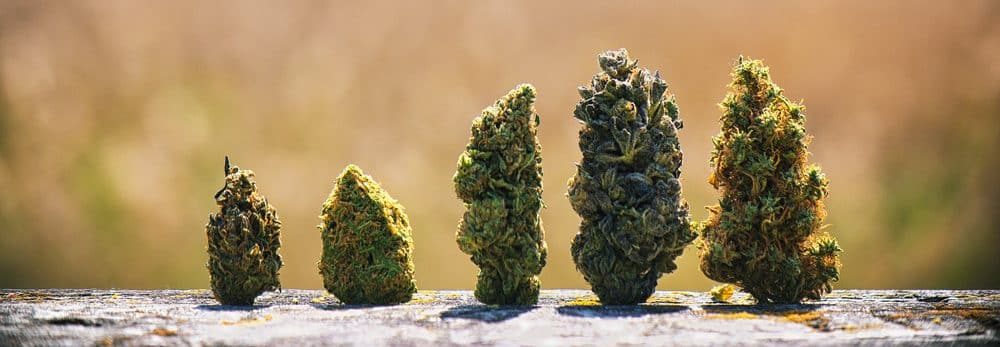Many times you hear marijuana referred to as a “gateway drug” to the “harder stuff,” but the question of is marijuana addictive is asked and debated probably more-so than that question involving any other drug. It’s true that weed is often the first stop for many people who are active addicts, or at least it was something that could have been true in the past. It’s affordable and widely available, especially with the widening legalization of medical and recreational marijuana.Marijuana is the most-used illicit drug in the United States, with roughly 9.5% of the population reporting use in the last year. Marijuana use is still far behind that of alcohol and tobacco, but for being a generally illegal drug, it is prevalent.As the availability of medical marijuana increases, it offers a safer alternative to treatments with harmful side effects. There are a myriad of benefits to marijuana when it is used responsibly.What about when it is not used responsibly, though? Can a simple joint after work turn into a real drug abuse problem?

Currently, recreational marijuana is legal in:
- Alaska
- California
- Colorado
- District of Columbia
- Nevada
- Maine
- Massachusetts
- Oregon
- Washington
Additionally, medical marijuana has been approved in:
- Arizona
- Arkansas
- Connecticut
- Delaware
- Florida
- Hawaii
- Illinois
- Maryland
- Michigan
- Minnesota
- Montana
- New Hampshire
- New Jersey
- New Mexico
- New York
- Vermont
- North Dakota
- Ohio
- Pennsylvania
What Is Addiction?
You are addicted to something when you cannot stop taking or doing it, even when you want to. Addiction usually refers to drug use, but use of the word has widened to relate to a reliance on internet, social media, video games and food. The National Institute on Drug Abusedescribes addiction as a disease, just like diabetes or cancer. Since drugs change the function of your brain, it makes sense.
Treatment Can Be Life Changing. Reach out today.
Whether you are struggling with addiction, mental health or both, our expert team is here to guide you every step of the way. Don’t wait— reach out today to take the first step toward taking control of your life.
In the Diagnostic and Statistical Manual of Mental Disorders (DSM-V), addiction is defined as a substance use disorder. Much like alcohol use disorder (AUD), substance use disorders are categorized as either mild, moderate or severe depending on the number of symptoms experienced.Regardless of the terminology used, if you are struggling with addiction or substance use disorder, you know the chaos it causes. It doesn’t matter what word you use to describe it; it affects you, everyone around you and your daily life.
Is Marijuana Addictive?
There is much debate onwhether or not marijuana is addictive. Most often, problem marijuana use is called marijuana use disorder. When you smoke large amounts of weed, your brain develops a tolerance to it. You rewire the cannabinoid receptors, resulting in the need to smoke, vape or ingest more to receive the same effects. Of the 9.5% of the population that use marijuana, roughly 30% live with some form of a marijuana use disorder. In the most extreme cases, addiction can be present, but usually individuals are on the lower end of the use disorder spectrum.
When you consume a large amount of marijuana on a regular basis, you will experience side effects when you suddenly stop. For other drugs such as opioids or alcohol, these are referred to as withdrawal symptoms. Although not necessarily called the same in reference to marijuana, there are side effects.These symptoms include:
- Irritability or anger
- Difficulties falling asleep or staying asleep
- Decreased appetite
- Cravings for marijuana
- Restlessness
- Physical discomfort
When quitting after a long period of heavy use, these symptoms last anywhere from a week to a month. Many “harder” addicts laugh at the idea of marijuana withdrawal, but for those who experience it, the problem is very real. It’s difficult to manage the sleeplessness and frustration that accompanies marijuana withdrawal.While it may not be addictive in every sense of the word, marijuana does rewire the brain and cause some to abuse or depend upon it. If you are going through this right now, you know exactly how it feels.
How Do I Know if I Have a Problem with My Marijuana Use?
Many people just want to know “simply is marijuana addictive?” – unfortunately the answer isn’t that simple, at least not for everyone out there. Although it is referred to as a “gateway drug,” many people find they can responsibly use marijuana, just like the many who responsibly use alcohol. There are plenty of people who have a healthy relationship with weed and are able to use it responsibly at the end of a long day.However, with 30% of marijuana users showing some signs of disordered use, there is a clearly an active dependence problem. As more states continue to legalize and greater amounts of people have access, the problem will likely worsen.
Related Topic:Marijuana addiction treatment
Do you think you are living with a marijuana use disorder? Ask yourself the following questions:
- Have I developed a dependence?
- How often am I smoking, vaping or ingesting marijuana?
- Does getting high occupy most of my time or mental energy?
- Is getting high causing problems with family or friends?
- Is my work or school performance suffering from my marijuana use?
If you feel you are struggling with your marijuana use, it may be a good idea to seek help. If you are using marijuana in combination with other drugs, the problem is heightened and you might be someone that answered the question of is marijuana addictive with a resounding YES. You can talk with your primary care doctor about your use or find a treatment center that can help you get sober. There is also a 12-step program specifically for marijuana users, Marijuana Anonymous.






